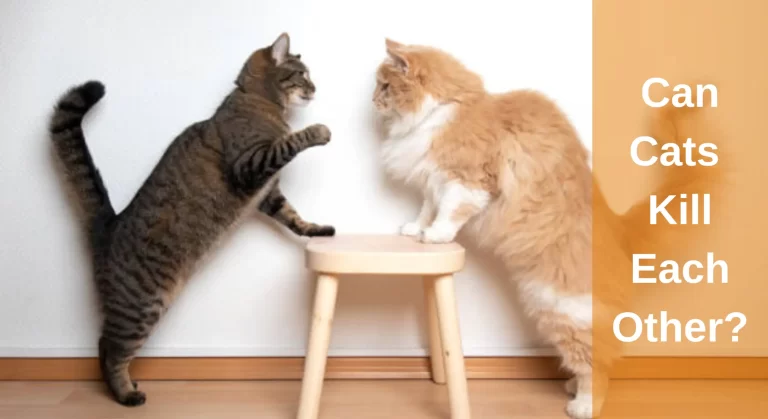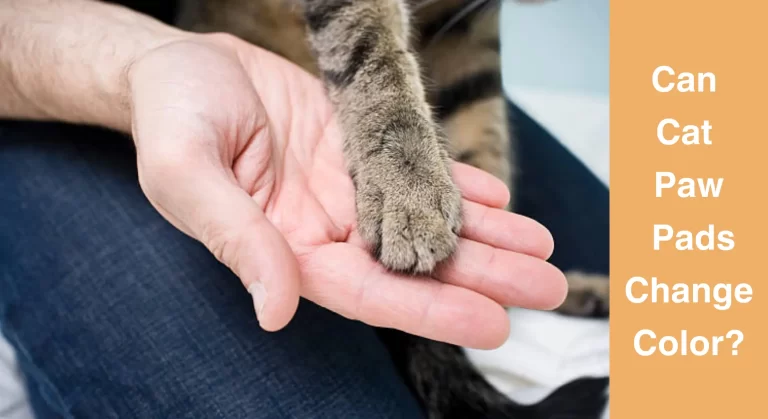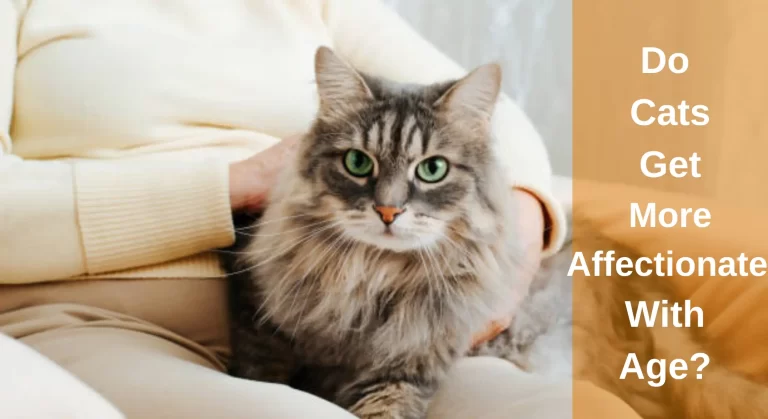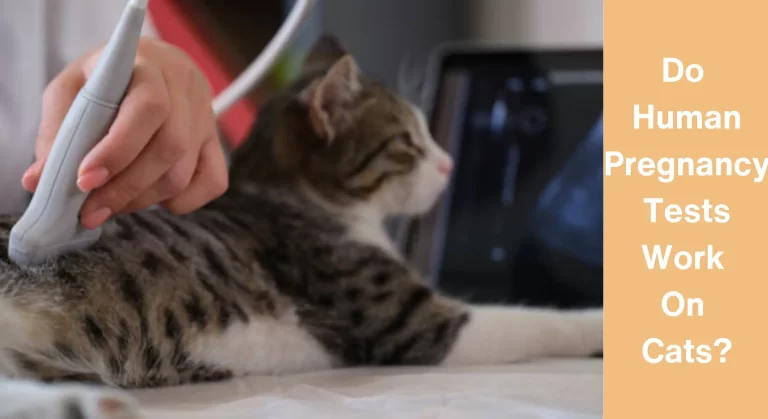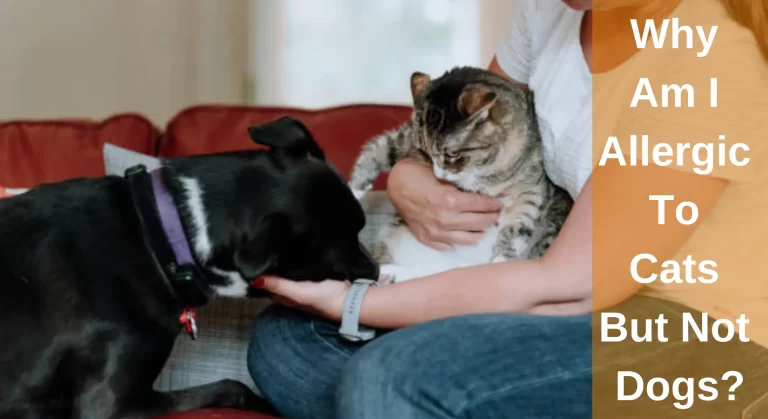Do Cats Inbreed? Things Cat Owners Should Know
Cats exhibit certain peculiar behaviors, particularly related to how they breed to produce their young. Moreover, if you own an unneutered cat, the breeding matter will be difficult to control. The reason is that sometimes your cats may interbreed. That appears to be an oversight, right? But studies suggest that this interbreeding is a common cat behavior. However, you might be thinking why do cats inbreed?
Yes, cats can inbreed by mating closely related individuals within the same lineage or population. When a cat experiences a heat cycle, she can mate with any cat close to her; whether it’s her father or brother, but this can lead to an elevated risk of genetic disorders, reduced fertility, and increased susceptibility to disease in their offspring. Responsible breeding practices prioritize genetic diversity to maintain healthier cat populations. To prevent inbreeding, choose a mate for your cat that is not closely related, and consider spaying or neutering your cat to avoid unintended breeding.
Even though inbreeding typically produces litters that are normal and in good condition, in excess it’ll cause problems. However, when you know the underlying causes, it’s not that difficult. In this article, you’ll discover more facts about cat interbreeding, its disadvantages, how to prevent this behavior, and much more!
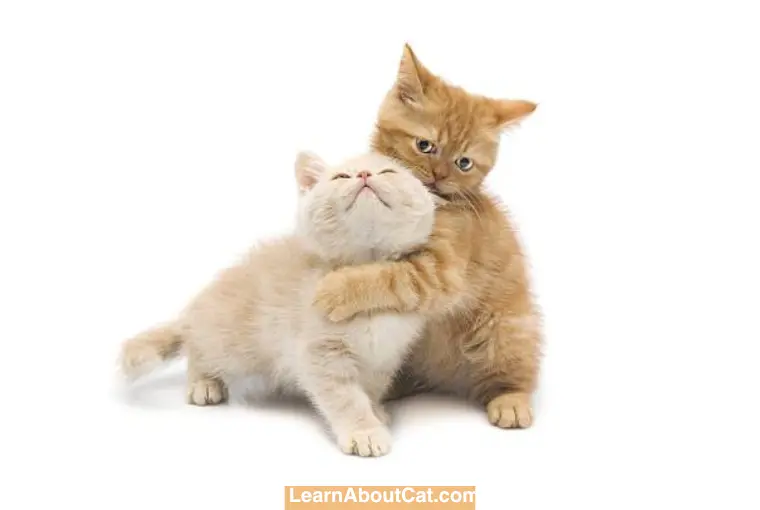
Do Cats Naturally Inbreed?
Cats naturally interbreed if given the chance, which may sound shocking to most cat owners. This implies that cats will mate if a male cat (whether he’s her father or brother) is present close to her during the breeding season. Likewise, if the litter of cats is nurtured together, they will also mate when the female is in season and is unneutered.
Find Out: Why Do Mother Cats Hate Their Kittens?
Do Cats Inbreed in the Wild?
Inbreeding is an option for cats, whether they’re domestic or wild, but it does not occur as frequently in the wild unlike how it occurs in carefully regulated domestic breeding.
Moreover, as cat species in the wild are typically more dispersed, there are fewer opportunities for cats to interbreed. Furthermore, since wild cats typically roam bigger areas, their communities tend to be more genetically diverse. These elements reduce the likelihood of inbreeding.
This behavior helps maintain genetic diversity within wild cat populations, reducing the risk of genetic disorders and promoting the overall health and adaptability of the species.
Do Inbreed Cats Live Long?
Inbreeding can lead to an increased risk of genetic disorders and health problems in cats, which may impact their lifespan.
The number of cycles of inbreeding has a significant impact on the longevity of an inbred feline. Certain felines can have healthy lives for a long time if they are not heavily inbred. However, severe inbreeding may result in major health issues in felines that limit their lifespans.
The accumulation of harmful genetic traits through inbreeding can result in various health issues that may affect the overall well-being and longevity of the cat.
Excessively inbred cats can develop genetic flaws, cancer, cardiovascular disease, kidney problems, and weak immunity, each of which affects how long they can live.
Interesting Reading: Why Do Mother Cats Attack Their Older Kittens?
Why Do Cats Inbreed?
Cats interbreed for five basic causes. These reasons largely affect cat behavior in its natural state and the situations that frequently lead to cat inbreeding. These scenarios typically involve two completely linked cats living within a home or a community of cats grouped in a remote location. Listed are the top five causes of cat inbreeding.
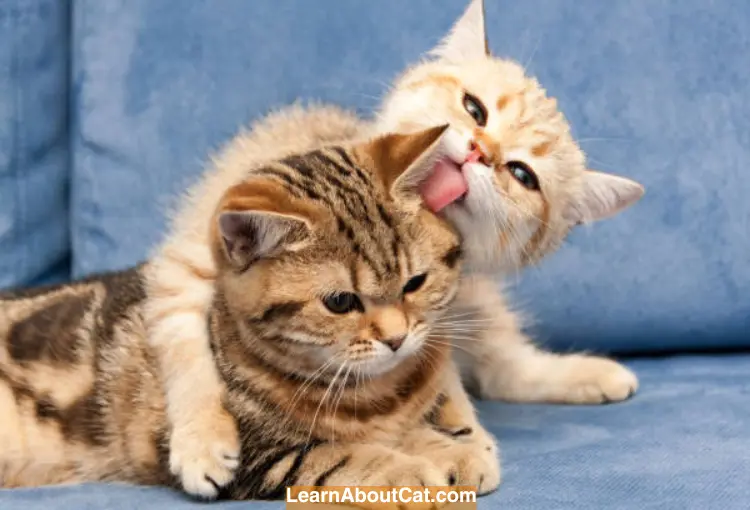
1. Cats are unaware of their family members like humans are
In comparison to humans, cats cannot identify their biological parents or siblings. Some cats could even try to interact with the others in their family. Intact cats do not usually consider who they’re mating with because it is a very instinctive behavior.
2. Cats are living in an isolated place
Compared to cats who live in a community, cats who live in isolated places are more prone to inbreeding. In isolated places, felines got fewer choices for mating, so they’ll possibly mate with their siblings or father.
3. Cats in your house are unneutered
If you want to prevent inbreeding, you must neuter your cats. This is particularly critical when you’re an owner of multiple cats of a different gender and all of them are residing in the same place. Also, neutering becomes much more crucial if all cats are from the same mother to prevent them from inbreeding.
Although this behavior is natural for felines in good physical condition, it must be avoided because inbred kittens have a chance of being born with certain genetic defects and health issues.
Also Read: Can a Neutered Male Cat Still Get a Female Pregnant?
4. There are no Social Protocols for Cats
Unlike humans, felines aren’t bound to the same norms of society, therefore, mating is an innate behavior for them. So, it isn’t odd or uncool for cats to interbreed.
5. Cats are not aware of the risks associated with inbreeding
As previously mentioned, cats only mate instinctively. Without caring about any ancestral connections, when they experience heat, they’ll mate with any feline of the opposing genders. They are unable to understand some genetic disorders that can be transmitted through inbreeding.
As felines depend on humans for their well-being, it is up to you to keep your cat secure from adverse effects, particularly the health hazards brought on by inbreeding.
Inbreeding Cats Side Effects: What Happens if a Mother and Son Cat Mate?
If a son cat doesn’t find any female and the mother cat is in heat, he’ll mate with her. But inbreeding imposes a variety of effects, whether beneficial or harmful; based on the DNA makeup of inbreed cats and the degree of inbreeding that happened through generations. Inbreeding has detrimental effects on cats, which include:
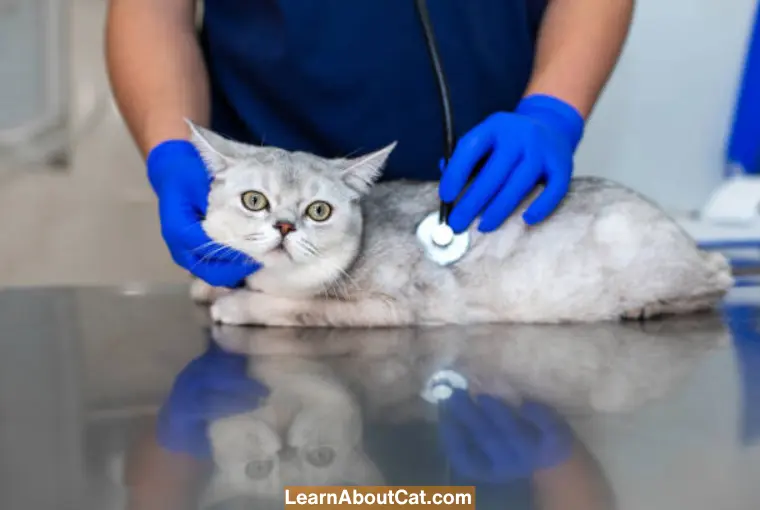
- Greater likelihood of hereditary genetic illnesses: When closely linked felines mate, there’s a greater chance that their progeny will develop hereditary genetic conditions. Several health ailments, including heart difficulties, breathing issues, skeletal defects, and weakened immune systems, might be a part of these diseases.
- Weaker immunity: Inbreeding can cause the variety of genes in a population to decrease. The immune system may be weakened by this decreased diversity, leaving the progeny more prone to illnesses and diseases.
- Lower fertility and smaller litter: Inbreeding can make cats less fertile. The litter sizes will reduce, and the kittens might become prone to stillborn situations or experience other health problems.
- Reduced lifespan: Inbred cats frequently suffer health problems that not just shorten their lifespans but also degrade their standards of living. They might survive for a couple of years or pass away shortly after birth.
- Cancer: A further prevalent issue that inbred felines have to face is cancer. While inbreeding can help prevent some diseases, it can also make some cancers more prevalent in inbred felines.
Also Check Out: Why Does My Cat Keep Moving Her Kittens?
What Are The Signs Of An Inbred Cat? Common Inbreed Cat Behaviors
Inbreeding can manifest in a variety of ways, and its symptoms are not usually immediately obvious. Here I’ve mentioned some signs of cats that are produced from inbreeding:
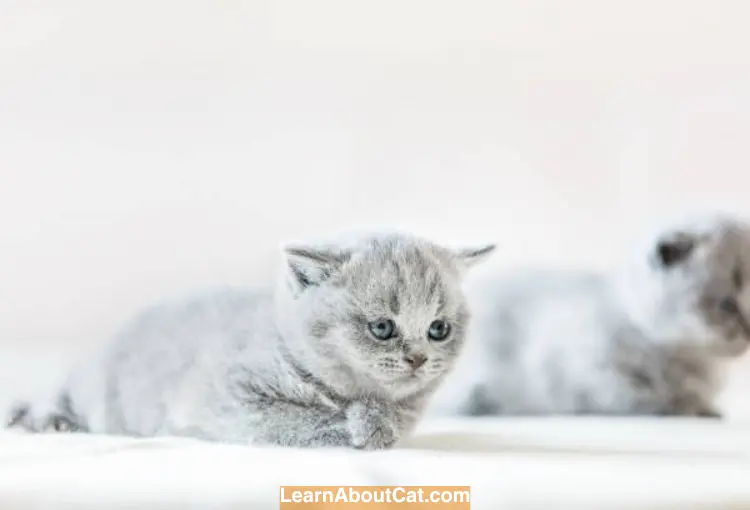
- Physical Deformities: Inbred cats may have physical deformities that are a result of genetic abnormalities. These deformities can manifest in various ways, such as malformed limbs, misshapen facial features, cleft palates, heart problems, unusual body proportions, and various other medical conditions. Physical deformities can vary in severity and may affect the cat’s ability to move and perform daily activities.
- Weakened Immune System: Compared to normal cats, inbred ones suffer from weakened immunity. They, therefore, become ill or suffer from illness-related consequences.
- Impaired Growth: Inbred felines frequently grow to be shorter compared to the breed average in terms of weight and height as adults. Inbred kittens frequently have petite, frail babies at birth.
- Reduced Fertility: Like several other inbred species, cats are prone to have issues with reproduction. This may apply to both delivering and giving birth to malformed or deceased kittens.
- Susceptibility to Genetic Disorders: One of the most significant concerns with inbreeding is the increased risk of inherited genetic disorders. Inbred cats may be more prone to conditions such as heart defects, vision problems, or neurological disorders.
- Poor Cognitive Abilities: Compared to other cats, extremely inbred felines are also challenging to get trained and tame. Thus, keeping them as pets becomes less appealing. They may have difficulty adapting to new environments or changes in routine, and their ability to interact socially with humans and other animals may be impaired.
- Behavioral Abnormalities: Excessively inbred felines will likely exhibit feral behavior; they will act protective or scared and rarely like engaging or sociable with people. Inbred felines have additionally been reported to have bad temperaments.
More Information: My Kitten is Weak And Sleepy – How to Care for a Sick Kitten [A Guide]
How To Prevent Cats From Inbreeding?
Inbreeding among cats can lead to serious health issues and genetic abnormalities. As responsible cat owners, it is essential to take proactive measures to prevent inbreeding and ensure the well-being of our feline companions.
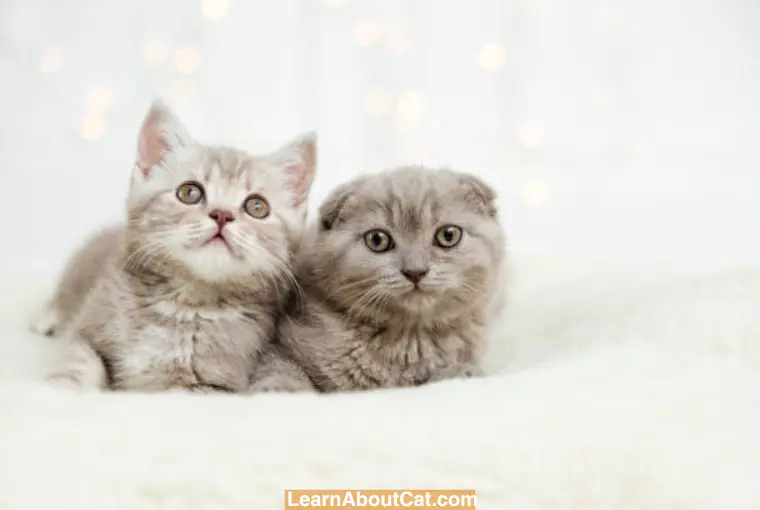
1. Spaying and Neutering
One of the most effective ways to prevent inbreeding is to spay and neuter our cats. This is because mating is an innate behavior in cats, thus whether they’re linked or not, they would probably do it when they know that the female is experiencing heat. Cats have a variety of economical choices for neutering, and you will learn more about these procedures from the local veterinarian.
- Spaying involves the removal of a female cat’s ovaries and uterus, while neutering refers to the removal of a male cat’s testicles.
- By spaying and neutering our cats, we eliminate the risk of accidental matings between closely related cats.
Find Out More: Can a Neutered Cat Live with an Unneutered Cat
2. Supervised Outdoor Access
If you allow your cats to venture outdoors, it is crucial to supervise their activities to prevent unsupervised encounters with unrelated cats. Outdoor cats should be closely monitored to ensure they do not mate with feral or unfamiliar cats, which could potentially lead to inbreeding.
When housing multiple cats, it is essential to keep unrelated cats in separate living spaces. This prevents accidental matings and minimizes the chances of inbreeding. Providing separate spaces for cats also reduces territorial conflicts and stress.
4. Responsible Breeding Practices
For those involved in cat breeding, responsible practices are essential to prevent inbreeding. Cat breeders should carefully select mating pairs based on their genetic backgrounds to avoid potential inbreeding issues. Keeping detailed records of pedigrees and lineage can help breeders make informed decisions about mating pairs.
5. Promoting Adoption
Encouraging cat adoption from shelters and rescue organizations can help reduce inbreeding. By adopting cats from shelters, we provide homes for cats that may otherwise breed with close relatives in uncontrolled environments. Adopting instead of purchasing from pet stores or breeders also helps support the welfare of stray and abandoned cats.
Should I Worry About a Kitten That is the Result of Inbreeding?
Even though discovering that your felines are inbred may seem somewhat frightening, most inbred felines do not suffer from the extremely negative consequences of inbreeding as long as there isn’t any evidence of it in their family.
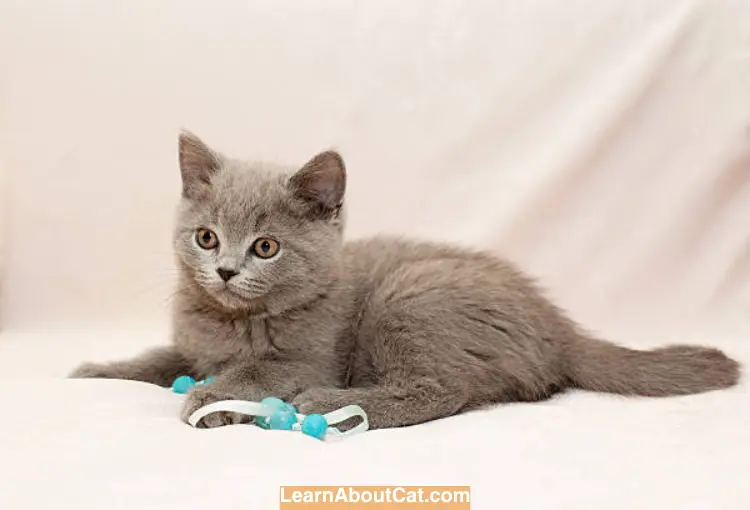
The kittens would be alright if it was a one-off event. When taking care of inbred felines, it is advised that you must take additional measures and consult your veterinarian for guidance.
Check Out: The Best Cat Breeds for Families with Children
Frequently Asked Questions
Is Inbreeding bad for cats?
Yes, inbreeding might be harmful to felines. Although this process won’t impact their parents, the likelihood that the kittens may be born with serious congenital defects or illnesses is substantially higher. These impacts on the kittens may cause them severe discomfort or, in the future, shorten their life expectancy. This is why intentionally inbreeding cats isn’t a good idea.
Can you breed half-sibling cats?
Yes, half-sibling breeding results in kittens with the appearance and genetic makeup of a specific breed, and it’s advised strongly. Line breeding is a term used in the cat breeding industry to describe the planned mating of half-siblings.
In comparison with mating first-degree relations, this method lowers the likelihood of inherited problems, but it is not enough to eliminate them.
Are white cats inbred?
No, white cats are not necessarily inbred. The gene for white fur is recessive, so two white cats must be homozygous recessive for white fur to produce a white kitten. However, not all white cats are a result of inbreeding. White fur can also occur through genetic mutations or selective breeding. Coat color, including white fur, is determined by specific genes and does not directly indicate inbreeding. Inbreeding refers to mating closely related cats, which can lead to genetic issues, but it is not solely determined by coat color.
Do cats breed with their siblings?
Yes, felines can inbreed with their brothers and sisters. The chances of inbreeding with siblings will be higher if the cat lives in a remote place or circumstance with just a few felines for them to possibly breed with.
Conclusion
Felines inbreed naturally as mating is an integral component of their innate behavior. Experienced breeders frequently use inbreeding to keep the ideal characteristics of a particular breed under control whilst eradicating the undesirable ones. Cats should have outstanding health throughout their entire life as soon as they’re the result of first-generation genetic inbreed
Cats with severe inbreeding are more likely to have life-threatening illnesses and genetic defects that decrease their longevity. Therefore, you must ensure that your cat isn’t a victim of this practice.
To reduce unexpected pregnancy and inbreeding behavior between cats from the same litter, spaying or neutering your family cats is highly recommended.
Who is Isabella?
My name is Isabella, and I am a dedicated and knowledgeable cat enthusiast. With years of experience caring for cats and a deep love for felines, I made a mission to help other cat lovers navigate the challenges of cat ownership.

